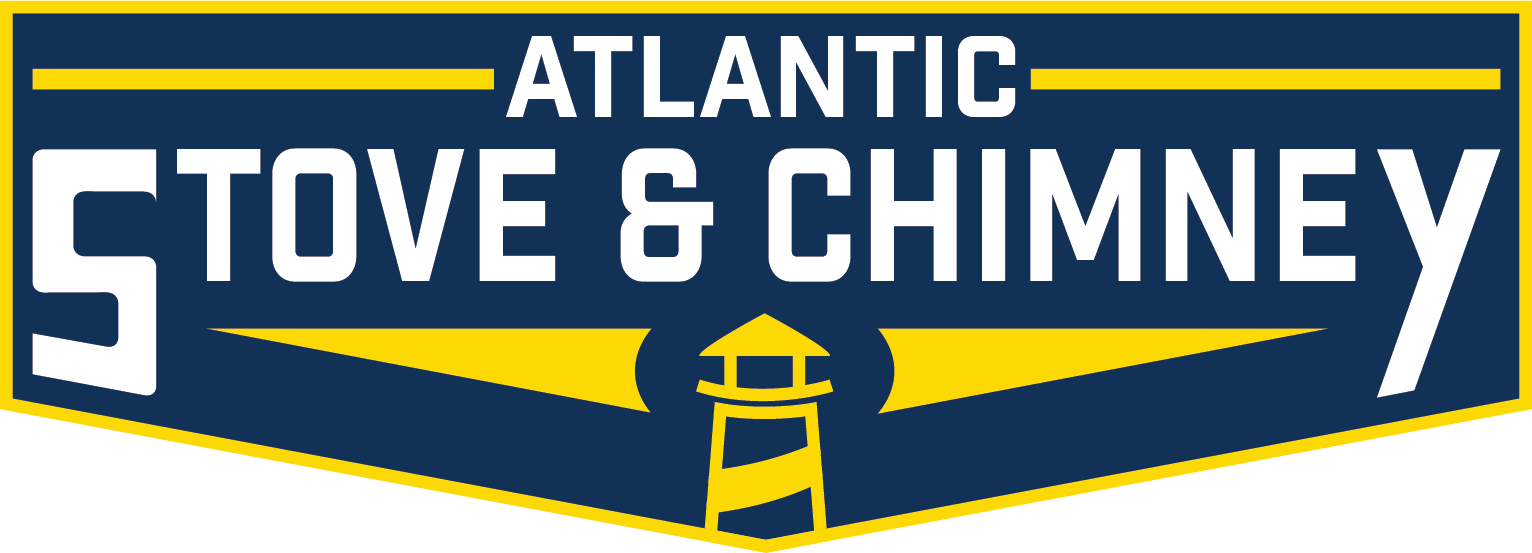

A metal Class A chimney has many benefits over traditional masonry chimneys. They offer much more flexibility for install location, are less prone to creosote build-up, require less structural maintenance, and generally provide better efficiency. Atlantic Stove & Chimney offers top of the line Class A chimney with one of the best warranties in the industry. In addition to sales and installation of wood chimneys we also offer venting systems for gas and pellet built to the same high standards. Our pellet venting is fully gasketed meaning that there is no need for messy sealant and it can easily be taken apart without ruining the pipe. Our gas venting is the most leak free system available featuring a stainless steel inner pipe encased in a laser welded galvalume outer layer.

Many masonry chimneys have tile liners to protect the chimney from corrosive gases that can compromise its integrity. Unfortunately tile liners do not handle rapid temperature changes very well and tend to develop cracks over time, reducing the liner’s ability to protect your chimney and home. While clay tiles tend to be common due to the low material cost, the cost of repairing them tends to be quite high. Metal liners offer many benefits over tile. They are much more durable, more resistant to creosote build-up, offer improved draft, and are much more affordable to install. From aluminum liners for gas appliances to stainless steel liners for solid fuel burning units, Atlantic Stove & Chimney installs the highest quality metal liners that all come with a lifetime guarantee.

As wood burns there are complex chemical reactions occurring. These reactions result in heat, water vapor, and various combustion gases. Your stove is constantly sending all of these into your chimney. As these hot gases rise they cool causing condensation which allows the gases to mix with the water and stick to the lining of the chimney. The result is a highly flammable mixture called creosote. While there are ways to mitigate the amount of creosote build-up, such as burning seasoned wood, insulating outside chimneys and burning your stove at the proper temperatures, your chimney should be swept and inspected annually to ensure safe and efficient operation of your wood stove.

While chimneys are an essential component to most heating systems, they do represent a breach between your home and the outside environment. Protection in the form of a chimney cap is highly recommended for a couple of reasons. A chimney cap keeps debris and animals from entering your venting system and causing dangerous obstructions that can lead to chimney fires or cause gases to back up into the home. Chimney caps also prevent costly damage to your chimney and home due to the outside elements. An unprotected chimney allows rain and snow to enter the flue and erode the chimney from the inside. If neglected this can allow water to enter the home and cause damage to the roof and ceilings as well as potential basement flooding.

Repointing is the process of renewing worn mortar joints between bricks in a masonry chimney. While the bricks in your masonry chimney can last 100+ years, the mortar that holds them together is a different story. Bricks and mortar both absorb water over time but the compression strength of mortar is much lower than brick. This difference accommodates the expansion of the bricks caused by varying temperatures. Unfortunately this also means that mortar has a much shorter lifespan than brick. Good mortar, properly laid can last up to 25 years but it will eventually begin to weather and crumble. To extend to life of your chimney and avoid costly water damage it is important to have the pointing on your chimney examined regularly.
